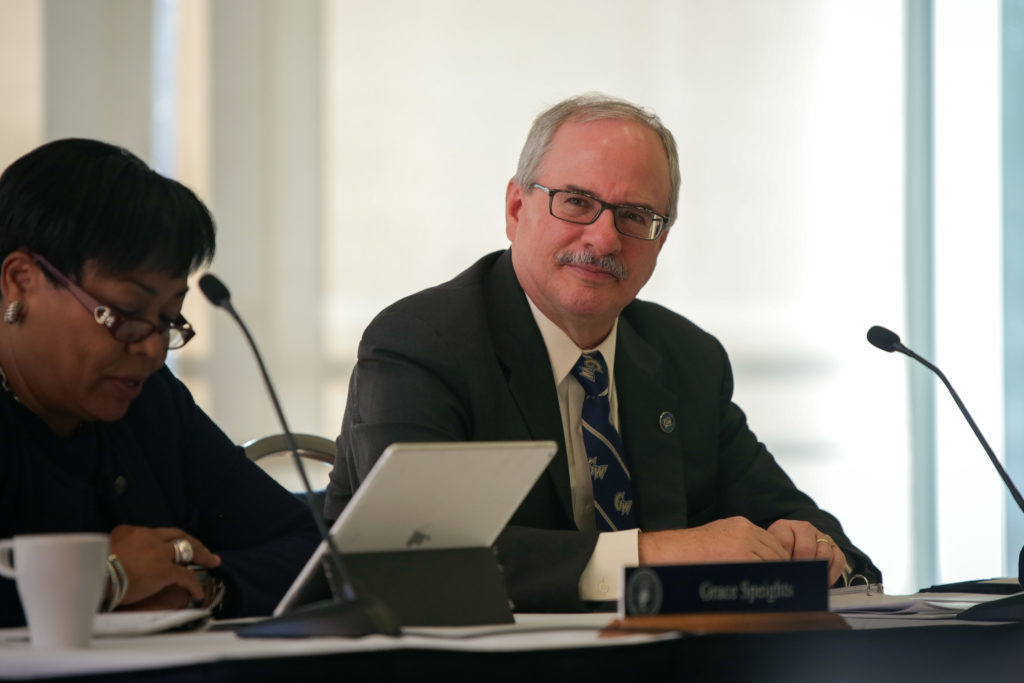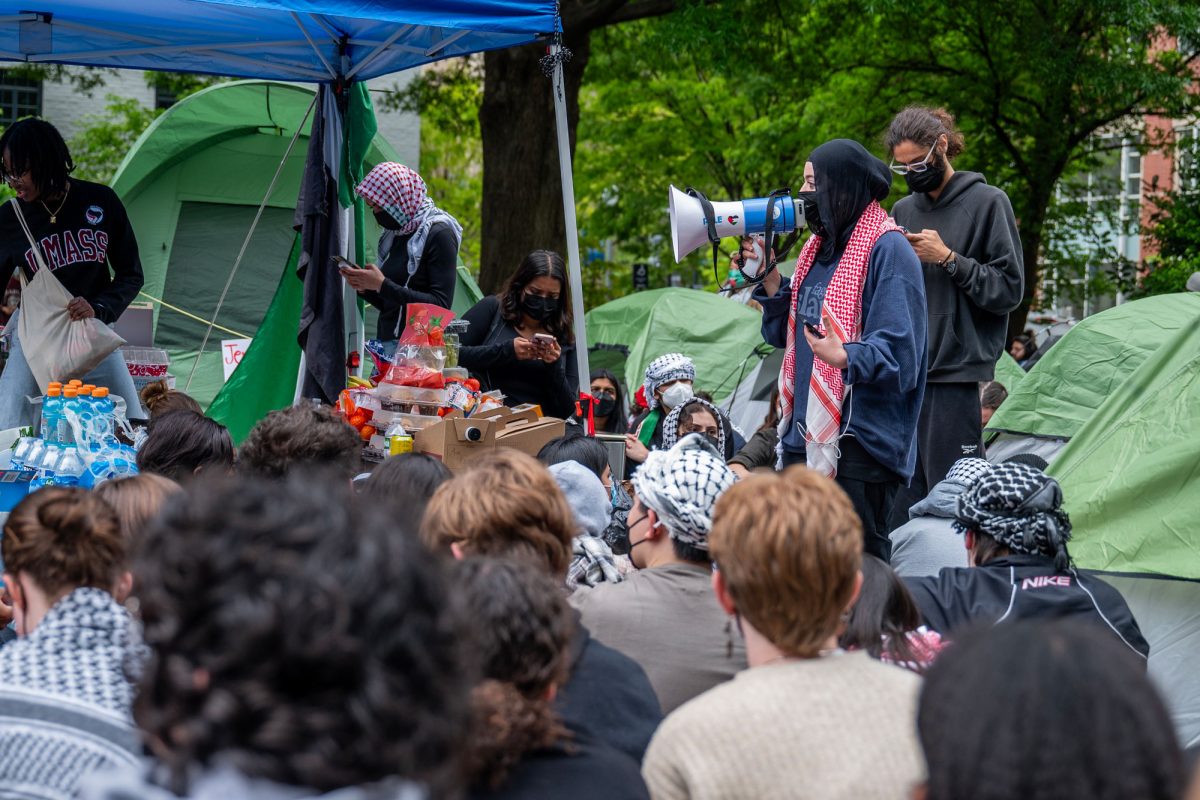As campus locked down during the inauguration, University President Thomas LeBlanc stopped his regular walks around Foggy Bottom with his wife, spending much of his time assessing GW’s safety protocols and preparing near-daily updates to the University community.
LeBlanc reminded students in D.C. to be “vigilant” and prepared as security threats led law enforcement to construct an armed fortress around the downtown area. The regular messages from LeBlanc often referenced a quiet campus except for National Guard troops on patrol throughout Foggy Bottom.
“During the inaugural week when we were on safety lockdown, they basically shut down all construction in the area,” LeBlanc said in an interview last week. “And it was the quietest GW has been in my entire time here.”
LeBlanc said staying in touch with the University community on issues like campus security and the evolving public health situation has been one of his top priorities since the COVID-19 pandemic hit last March, and he’ll continue to leverage constant communication in the coming months. He added that the pandemic helped officials learn to be “more flexible” with academics moving forward.
As students moved in over two weekends following the inauguration, LeBlanc said parents thanked him for the regular updates on the University’s operations.
“I can’t tell you how many times I’ve had people come up to me, including [the first move-in weekend] when I greeted parents and students, and thank me for the regular communication coming from the University,” he said. “And sometimes the communication didn’t have any news. And sometimes the communication just said, ‘Things are still OK.’”
LeBlanc said he has not left campus since March and is hoping the remainder of 2021 will bring back a sense of normalcy, which began with permitting more students on campus this spring. About 1,500 students are back on campus this semester, a three-fold jump from the fall.
“It was great to see the students coming back,” he said. “Even with appropriate social distancing and masks, it’s just great having more students back on campus. And of course, as we bring more students back to campus, we reiterated with them the important role that they play in keeping our community safe.”
LeBlanc said he is “actively planning” for an in-person fall semester as GW closes out its bicentennial celebration that kicks off this month. Safety will always guide decision-making, particularly the distribution of vaccines in the coming months, he said.
He said once classes are back in person, he expects many faculty will consider holding virtual office hours permanently or even virtual instruction during inclement winter weather rather than canceling class once GW returns to normal operations.
“What I’ve heard from faculty and students both is faculty are more willing to do office hours at night if they don’t have to drive back to campus,” LeBlanc said. “So maybe they could create some more convenient opportunities for students, and they feel like most of what you get out of office hours is perfectly achievable via Zoom.”
He said he also hopes to explore making study abroad more feasible for students by enabling them to take virtual courses at GW while they live outside of the United States. Officials have canceled study abroad programs through this summer.
“One of the big barriers [to studying abroad] has always been a curriculum that doesn’t have the flexibility for you to be gone for a semester,” LeBlanc said. “Well, maybe you could do that if you took a couple of courses online while you’re doing study abroad.”
LeBlanc said officials have been focusing on fundraising efforts to increase need-based aid as GW enters its bicentennial year. GW has experienced some of its best fundraising years since LeBlanc’s arrival while struggling to improve the University’s alumni giving rate, which has historically lagged behind most peer schools.
The federal government allocated roughly $13.8 million to the University in the stimulus package signed into law late last year, some of which must be used for emergency student aid. LeBlanc said he “presumes” officials will distribute those funds in a similar fashion to grants given after Congress passed the CARES Act in April, but exact details are still being finalized.
Officials distributed all of the roughly $9.1 million allocated through the CARES Act to students.
LeBlanc said the funds can also help officials pay for GW’s COVID-19 testing capability and losses incurred during the pandemic.
“That was very much welcome from the federal government,” LeBlanc said. “I think both the students and the University will benefit from it.”
Sarah Roach contributed reporting.







